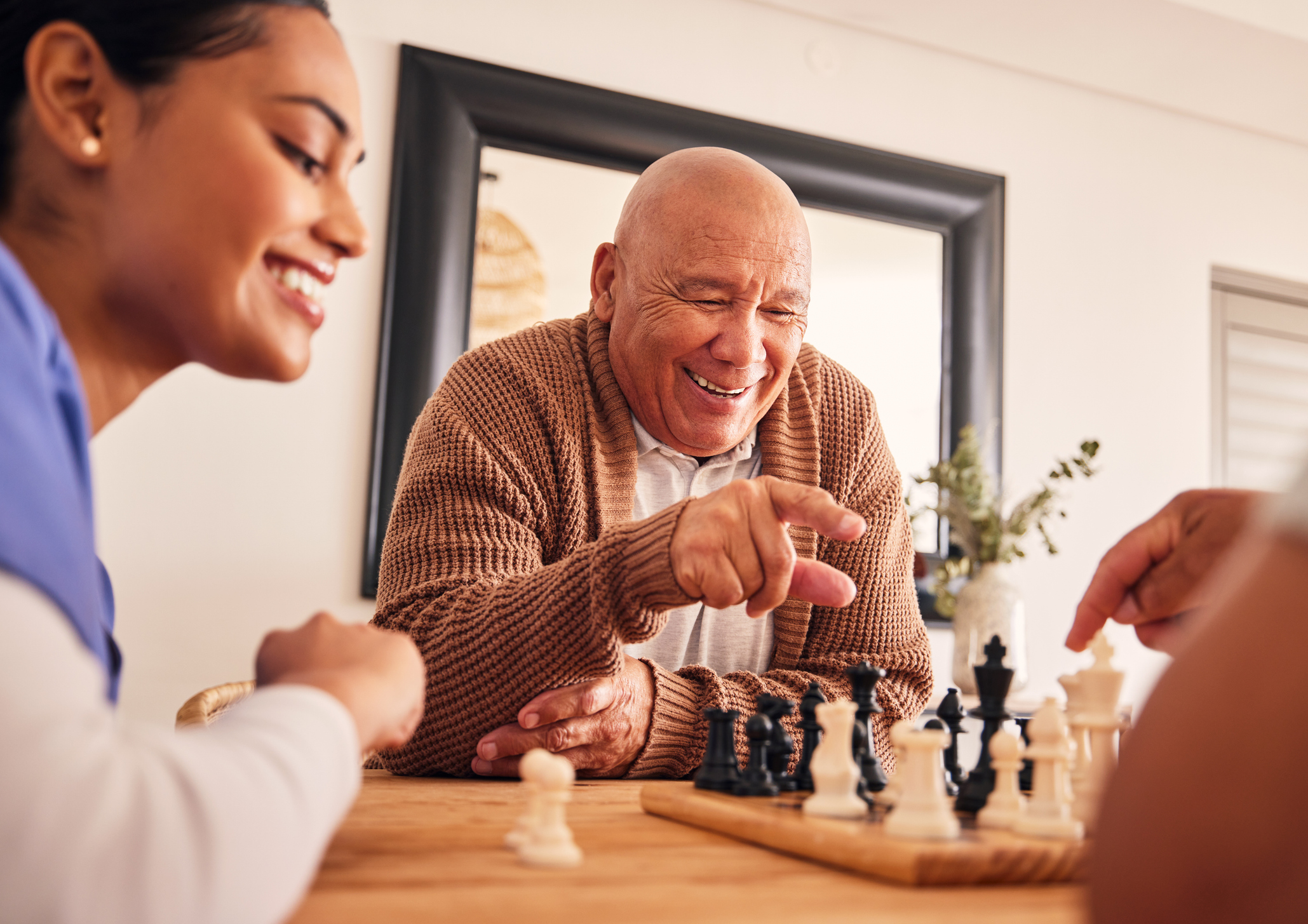Home care services are an effective way to help aging adults get the care they need in the comfort of their home. Of course, using general home care services and transitional care services, which support transportation and help seniors attend important appointments, can still feel like a big discussion for families.
If someone you love is receiving Alzheimer care or other common forms of care for seniors, it is often safer for them to receive care at home to ensure they have everything they need. From daily drop-ins to 24-hour live-in care services, home care services can make a life-saving difference and increase the quality of life for the seniors you know and love.
Let’s explore how home care services support healthy aging for seniors.
Some signs include:
References:
If someone you love is receiving Alzheimer care or other common forms of care for seniors, it is often safer for them to receive care at home to ensure they have everything they need. From daily drop-ins to 24-hour live-in care services, home care services can make a life-saving difference and increase the quality of life for the seniors you know and love.
Let’s explore how home care services support healthy aging for seniors.
Clues That It Is Time to Consider the Benefits of Home Care Services and Transitional Care Services
Times change, and our needs change with them. Over time, seniors will begin to have different needs, and these evolving needs can reveal that it is time to consider home care. From fall prevention to medication management, home care services keep seniors safe. These are some of the more common clues that it is time for your family to start considering traditional home care services or expanded services, like 24-hour live-in care services.Indications of Memory Loss
We often think of physical health as the biggest concern, but many people fail to realize how dangerous memory loss can be for a person’s physical health. Memory loss is a common symptom of Alzheimer’s, and it will evolve over time, with the individual’s memory declining each year. As memory loss worsens, your loved one will ultimately end up at a higher level of risk. What starts with simply forgetting someone’s birthday can turn into forgetting that something is cooking on the stove. An unreliable memory can seem like simple forgetfulness at first, but over time, it becomes a trend. Some indicators include:- Forgetting important dates
- Forgetting conversations
- Forgetting answers to questions that have already been asked
- Forgetting locations, names, or people
- Forgetting to manage essential tasks
Trouble With Medication Management
Aging adults always begin to feel the effects of age, and medications can offer life-saving support for some common conditions. 69% of seniors rely on some kind of daily medication to manage their conditions. Unfortunately, failing to take these medications can lead to increased symptoms at best and hazardous conditions at worst. A big component of Alzheimer care is making sure that medications are taken when they need to be. If the senior in your life is no longer able to effectively manage their own medication, home care is essential. In home care, your loved one’s support system will ensure that they stay caught up on their medications. This will keep them safe and healthy for longer.Growing Health Risks
With the changing times, our bodies change and our medical conditions evolve. During our later years, it is common for conditions to worsen or even for new conditions to evolve, with roughly 80% of seniors having two or more chronic conditions. For seniors, managing their own health can be a full-time job—and during their retirement years at that! An increase in health risks means that it is generally not safe to live alone or without someone checking in. As a person’s condition worsens with time, having someone nearby can make a life-saving difference and allow them to receive care if something goes wrong. For growing needs, 24-hour live-in care services can provide safety, comfort, and security. Home care helps aging adults to receive the additional support they need to manage their health. From therapy and healthy eating to medication management, home care services allow individuals to get support to stay comfortable and as healthy as possible.Injuries or Increased Injury Risk
Although overall physical health is a critical consideration, it is also important to focus on the potential risk of injury. A senior can be perfectly healthy, but an unexpected injury can change that quickly. As more time passes, most seniors end up increasing their risk of a potential injury, which is why fall prevention is so important. In fact, falling is the most prevalent cause of death for adults over the age of 65. Understanding that this is natural and even likely can take time. However, it is important to recognize these risks and their potential. Looking for early signs that a person is at risk can help your family identify when home care is a better option.Some signs include:
- A growing unsteadiness while walking and moving
- Being more prone to falls or having close calls
- Struggling to carry or move certain items due to the muscular strain
- Having medications or medical conditions that weaken muscles, impact stability, or cause lightheadedness or fainting
Declining Living Conditions
The signs that a person with Alzheimer’s condition is worsening are not always about their physical body or mental clarity. Sometimes, they show in other ways—like worsening living conditions at home. As Alzheimer’s progresses for seniors, it can make them more forgetful and cause a decline in overall energy, as well as certain capabilities. Any of these changes can result in someone failing to care for themselves or their homes. If you notice that a loved one is living in worsening conditions every time you see them, home care should be a top consideration. Look for indicators that the space hasn’t been cleaned or maintained, that your loved one is not keeping good food in the house or cooking, or that pet care is falling behind.An Increasing Need for Medical Assistance
At some point in our lives, we all need medical support. As we get older, the need for medical support can increase significantly. Even if we can manage our own medications, some needs go beyond what the average person can handle and the need for a trained professional becomes apparent.When your loved one’s health reaches a state where they need continuous medical assistance, it can be a good idea to transition to home care services. This will ensure that they receive the support they need and always have access to trained experts.Your Family Has Justifiable Concerns
Sometimes the signs that it is time for home care are clear. Other times, they are really more of a shared feeling among relatives. Although these discussions are not always easy, they are always important.If your family feels that a loved one needs home care services to stay safe, have the discussion. It can really help.Choose Home Care Services When It’s Time for Additional Support
Pairing home care services with transitional care services helps seniors and individuals in need of Alzheimer care to get the additional support they need. Whether it is help with general chores and food preparation or getting a ride to a doctor’s appointment, having trained experts around the home can make a person’s later years safer and more pleasant. To explore home care, Broward County residents can connect with our team to receive the support they need. We are happy to meet your family’s needs, whether it is with general check-ins or 24-hour live-in care services!References:
- https://www.nhs.uk/conditions/alzheimers-disease/symptoms/#:~:text=Later%20symptoms&text=A%20number%20of%20other%20symptoms,weight%20loss%20%E2%80%93%20sometimes%20severe
- https://www.mayoclinic.org/diseases-conditions/alzheimers-disease/in-depth/alzheimers-stages/art-20048448
- https://health.usnews.com/senior-care/caregiving/articles/identifying-the-right-time-for-senior-care
- https://www.ncbi.nlm.nih.gov/books/NBK560761/#:~:text=Risk%20factors%20for%20falls%20in,limits%2C%20age%20over%2080%20years%2C
- https://www.dshs.wa.gov/altsa/home-and-community-services/self-neglect
- https://www.ncbi.nlm.nih.gov/pmc/articles/PMC8590057/
- https://www.ncbi.nlm.nih.gov/books/NBK235613/
- https://www.hopkinsmedicine.org/health/wellness-and-prevention/avoiding-injuries-as-you-age#:~:text=Overview,death%20in%20people%20over%2065.
- https://www.ncbi.nlm.nih.gov/pmc/articles/PMC10067503/
- https://www.cdc.gov/falls/index.html
- https://www.nia.nih.gov/health/memory-loss-and-forgetfulness/memory-problems-forgetfulness-and-aging
- https://www.ncoa.org/article/get-the-facts-on-healthy-aging
- https://www.sciencedirect.com/topics/medicine-and-dentistry/unsteadiness#:~:text=Unsteadiness%20describes%20a%20balance%20symptom,%2C%20standing%2C%20or%20walking).




